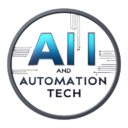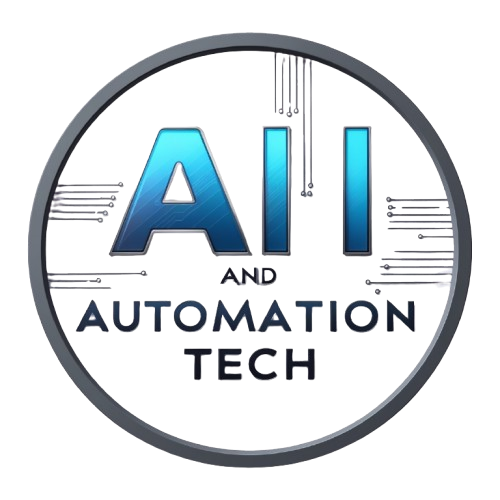As we step into the new year, the world of AI automation is poised to transform the way we work and live.
With the rapid advancements in artificial intelligence, automation is expected to become even more prevalent in various industries.
In this article, we’ll dive into the top AI automation trends in 2024, exploring the impact on business operations, industry-specific applications, and what this means for the future of work.
Top AI Automation Trends in 2024: What to Expect
The rapid pace of technological advancements has led to a surge in AI automation trends, with 2024 expected to be a transformative year. From process optimization to predictive analytics, the applications of AI are vast and varied. As AI technology continues to evolve, businesses will need to adapt and innovate to stay ahead of the competition. In this article, we’ll explore the top AI automation trends in 2024, examining their potential impact on industry and society.
As AI automation advances, the future of work is likely to be drastically altered. With machines taking over repetitive and mundane tasks, humans will be free to focus on higher-value activities that require creativity, empathy, and problem-solving skills. The question is, are we prepared for this shift? AI-powered automation will require significant changes to our education and training systems, as well as a re-evaluation of our social and economic structures.
AI automation is not a one-size-fits-all solution. Different industries will require unique applications of AI technology to optimize their operations and improve efficiency. In healthcare, AI can be used to analyze medical images and diagnose diseases more accurately. In finance, AI can help automate complex financial transactions and reduce errors. As AI automation advances, we can expect to see industry-specific applications that transform the way we work and live.
The impact of AI automation on business operations will be felt across the entire organization. From supply chain management to customer service, AI can help streamline processes, reduce costs, and improve accuracy. While some jobs may be displaced, AI automation will also create new opportunities for workers to upskill and reskill. As businesses adapt to the changing landscape, they will need to prioritize upskilling and reskilling their workforce to stay competitive.
AI-Powered Automation: The Future of Work

The rapid pace of technological advancements has led to a surge in AI automation trends, with 2024 expected to be a transformative year. From process optimization to predictive analytics, the applications of AI are vast and varied. As AI technology continues to evolve, businesses will need to adapt and innovate to stay ahead of the competition.
The adoption of Artificial Intelligence (AI) can bring numerous benefits to small businesses, from automating repetitive tasks to personalizing customer service and analyzing data.
The implementation of AI should be done gradually, identifying areas that can benefit immediately and conducting pilot projects to assess the efficiency of these solutions.
Success stories in different sectors show how AI can be a powerful tool to boost growth and improve operational efficiency.
With AI, small businesses can not only compete on equal footing with larger companies but also innovate and create new opportunities in the market.
Therefore, do not overlook the potential of AI to revolutionize your business.
AI automation is not a one-size-fits-all solution. Different industries will require unique applications of AI technology to optimize their operations and improve efficiency.
In healthcare, AI can be used to analyze medical images and diagnose diseases more accurately. In finance, AI can help automate complex financial transactions and reduce errors.
As AI automation advances, we can expect to see industry-specific applications that transform the way we work and live.
The impact of AI automation on business operations will be felt across the entire organization. From supply chain management to customer service, AI can help streamline processes, reduce costs, and improve accuracy.
While some jobs may be displaced, AI automation will also create new opportunities for workers to upskill and reskill.
As businesses adapt to the changing landscape, they will need to prioritize upskilling and reskilling their workforce to stay competitive.
AI Automation in 2024: Industry-Specific Applications
The rapid pace of technological advancements has led to a surge in AI automation trends, with 2024 expected to be a transformative year. From process optimization to predictive analytics, the applications of AI are vast and varied. As AI technology continues to evolve, businesses will need to adapt and innovate to stay ahead of the competition.
The adoption of Artificial Intelligence (AI) can bring numerous benefits to small businesses, from automating repetitive tasks to personalizing customer service and analyzing data.
The implementation of AI should be done gradually, identifying areas that can benefit immediately and conducting pilot projects to assess the efficiency of these solutions.
Success stories in different sectors show how AI can be a powerful tool to boost growth and improve operational efficiency.
With AI, small businesses can not only compete on equal footing with larger companies but also innovate and create new opportunities in the market.
Therefore, do not overlook the potential of AI to revolutionize your business.
The healthcare industry can benefit from AI-powered diagnostic tools, while the finance sector can leverage AI-driven predictive analytics to optimize investment strategies.
In manufacturing, AI can be used to streamline production processes and improve quality control.
By understanding the specific needs of each industry, businesses can harness the power of AI to drive innovation and growth.
The impact of AI automation on business operations will be felt across the entire organization.
From supply chain management to customer service, AI can help streamline processes, reduce costs, and improve accuracy.
While some jobs may be displaced, AI automation will also create new opportunities for workers to upskill and reskill.
As businesses adapt to the changing landscape, they will need to prioritize upskilling and reskilling their workforce to stay competitive.
The Impact of AI Automation on Business Operations

The rapid pace of technological advancements has led to a surge in AI automation trends, with 2024 expected to be a transformative year. From process optimization to predictive analytics, the applications of AI are vast and varied. As AI technology continues to evolve, businesses will need to adapt and innovate to stay ahead of the competition.
AI-Powered Automation: The Future of Work
The adoption of Artificial Intelligence (AI) can bring numerous benefits to small businesses, from automating repetitive tasks to personalizing customer service and analyzing data.
The implementation of AI should be done gradually, identifying areas that can benefit immediately and conducting pilot projects to assess the efficiency of these solutions.
Success stories in different sectors show how AI can be a powerful tool to boost growth and improve operational efficiency.
With AI, small businesses can not only compete on equal footing with larger companies but also innovate and create new opportunities in the market.
Therefore, do not overlook the potential of AI to revolutionize your business.
AI Automation in 2024: Industry-Specific Applications
The healthcare industry can benefit from AI-powered diagnostic tools, while the finance sector can leverage AI-driven predictive analytics to optimize investment strategies.
In manufacturing, AI can be used to streamline production processes and improve quality control.
By understanding the specific needs of each industry, businesses can harness the power of AI to drive innovation and growth.
The Impact of AI Automation on Business Operations
The adoption of Artificial Intelligence (AI) can bring numerous benefits to small businesses, from automating repetitive tasks to personalizing customer service and analyzing data.
The implementation of AI should be done gradually, identifying areas that can benefit immediately and conducting pilot projects to assess the efficiency of these solutions.
Success stories in different sectors show how AI can be a powerful tool to boost growth and improve operational efficiency.
With AI, small businesses can not only compete on equal footing with larger companies but also innovate and create new opportunities in the market.
Therefore, do not overlook the potential of AI to revolutionize your business.
Conclusion: Embracing the AI Automation Revolution
The rapid pace of technological advancements has led to a surge in AI automation trends, with 2024 expected to be a transformative year. From process optimization to predictive analytics, the applications of AI are vast and varied. As AI technology continues to evolve, businesses will need to adapt and innovate to stay ahead of the competition.
AI-Powered Automation: The Future of Work
The adoption of Artificial Intelligence (AI) can bring numerous benefits to small businesses, from automating repetitive tasks to personalizing customer service and analyzing data.
The implementation of AI should be done gradually, identifying areas that can benefit immediately and conducting pilot projects to assess the efficiency of these solutions.
Success stories in different sectors show how AI can be a powerful tool to boost growth and improve operational efficiency.
With AI, small businesses can not only compete on equal footing with larger companies but also innovate and create new opportunities in the market.
Therefore, do not overlook the potential of AI to revolutionize your business.
AI Automation in 2024: Industry-Specific Applications
The healthcare industry can benefit from AI-powered diagnostic tools, while the finance sector can leverage AI-driven predictive analytics to optimize investment strategies.
In manufacturing, AI can be used to streamline production processes and improve quality control.
By understanding the specific needs of each industry, businesses can harness the power of AI to drive innovation and growth.
The Impact of AI Automation on Business Operations
AI automation has the potential to revolutionize business operations, from supply chain management to customer service.
By automating repetitive tasks, businesses can free up resources to focus on higher-value activities.
Additionally, AI-powered analytics can help businesses make data-driven decisions, improving operational efficiency and reducing costs.
FAQ – Frequently Asked Questions about Artificial Intelligence in Small Business
How can task automation benefit my small business?
Task automation frees up your team from repetitive tasks, increasing productivity and allowing them to focus on higher-value activities.
What tools can I use for data analysis?
There are various tools available, such as Google Analytics, Tableau, and Microsoft Power BI, that help collect and interpret valuable data.
What are chatbots and how do they improve customer service?
Chatbots are virtual assistants that can answer questions and resolve problems at any time, improving customer experience and freeing up your team.
How can I personalize the customer experience?
Through data analysis, you can understand customers’ preferences and offer personalized recommendations and promotions.
Why is customer feedback important?
Feedback is essential to identify areas that need improvement and adjust your service strategy, ensuring customer satisfaction.
Is artificial intelligence accessible to small businesses?
Yes, there are various AI solutions that are accessible and scalable for small businesses to improve efficiency and customer service.




